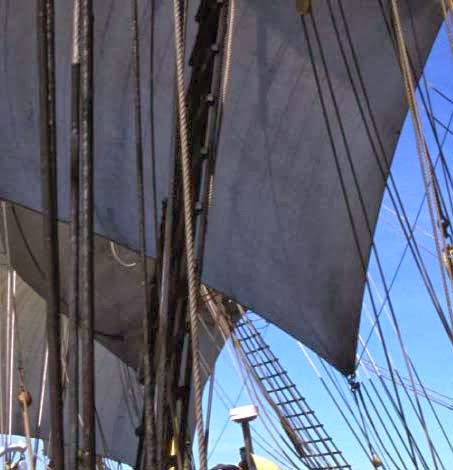[Batavia to Capetown]
29th. Very variable weather; sometimes squally, with rain, other
times little wind and calms. In the Night died Mr. Charles Green, who was
sent out by the Royal Society to observe the Transit of Venus. He had
long been in a bad state of health, which he took no care to repair, but,
on the contrary, lived in such a manner as greatly promoted the disorders
he had had long upon him; this brought on the Flux, which put a period to
his life. Wind North Westerly; course South 40 degrees West; distance 74
miles; latitude 11 degrees 57 minutes South; longitude 258 degrees 15
minutes West.
30th. First and Latter parts moderate breezes and Cloudy
weather; the middle Squally, with rain, Thunder, and Lightning. Died of
the Flux Samuel Moody and Francis Haite, 2 of the Carpenter's Crew. Wind
Easterly; course South 40 degrees West; distance 67 miles; latitude 12
degrees 48 minutes South; longitude 258 degrees 59 minutes West.
31st. First part Moderate and fair, the remainder frequent
Squalls, attended with Showers of Rain. In the course of this 24 Hours we
have had 4 men died of the Flux, viz., John Thompson, Ship's Cook;
Benjamin Jordan, Carpenter's Mate; James Nickolson and Archibald Wolf,
Seamen; a melancholy proof of the calamitieous situation we are at
present in, having hardly well men enough to tend the Sails and look
after the Sick, many of whom are so ill that we have not the least hopes
of their recovery. Wind East-South-East; course South-West; distance 80
miles; latitude 13 degrees 42 minutes South; longitude 259 degrees 55
minutes West.
Joseph Banks Journal
29th.
Self still Bad; three more of the people died this day.
30th.
For the first time I found myself better and slept some time, which my continual pains had never sufferd me to do before notwistanding the opiates which were constantly administerd. One person only died today, but so weak were the people in general that, officers and men included, not more than 8 or nine could keep the deck so that 4 in a watch was all they had.
31st.
This day I got out of my bed in good spirits and free from pain but very weak. My recovery had been as rapid as my disease was violent, but to what cause to attribute either the one or the other to we all were equaly at a loss.
The wind which came to E and SE yesterday blew today in the same direction so we had little reason to doubt its being the true trade, a circumstance which raisd the spirits of even those who were most afflicted with the tormenting disease, which now ragd with its greatest violence.











